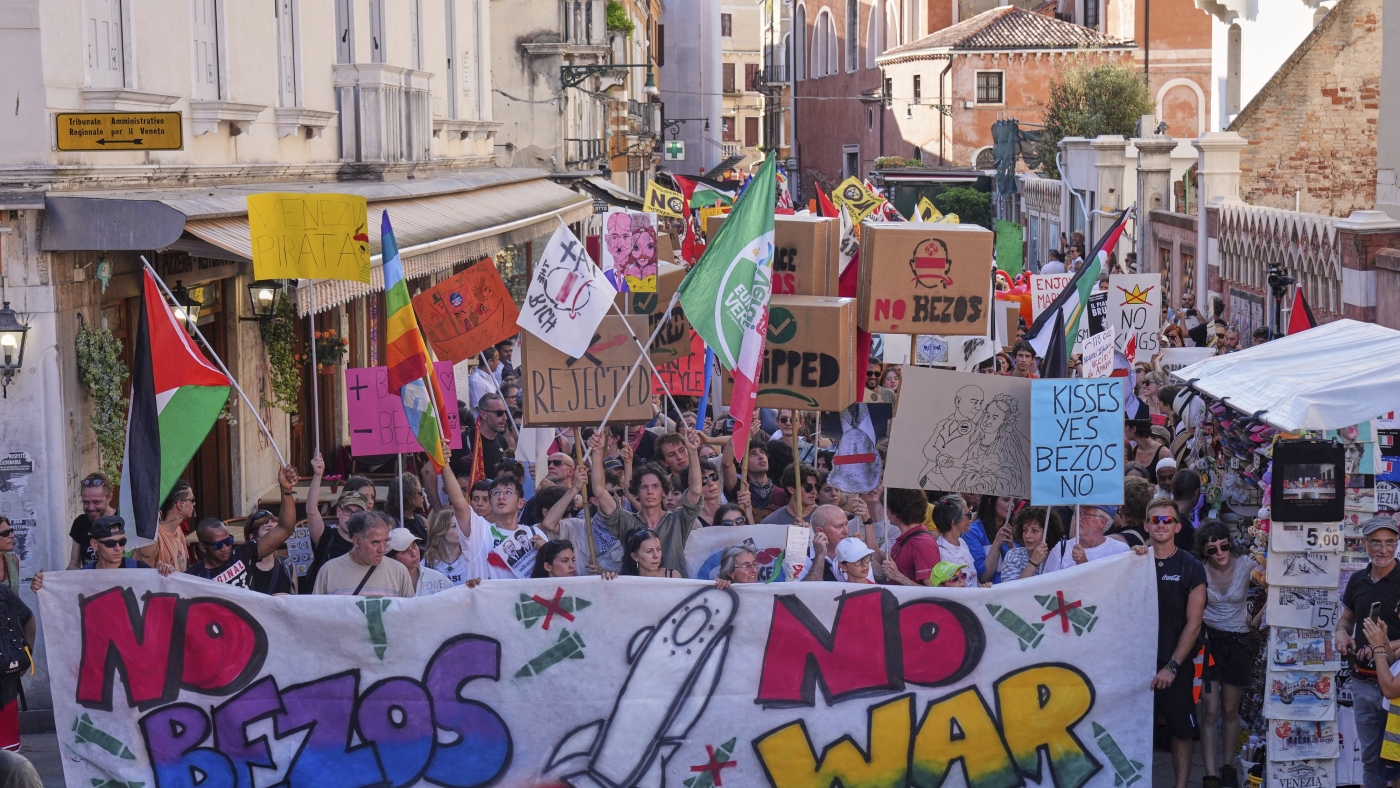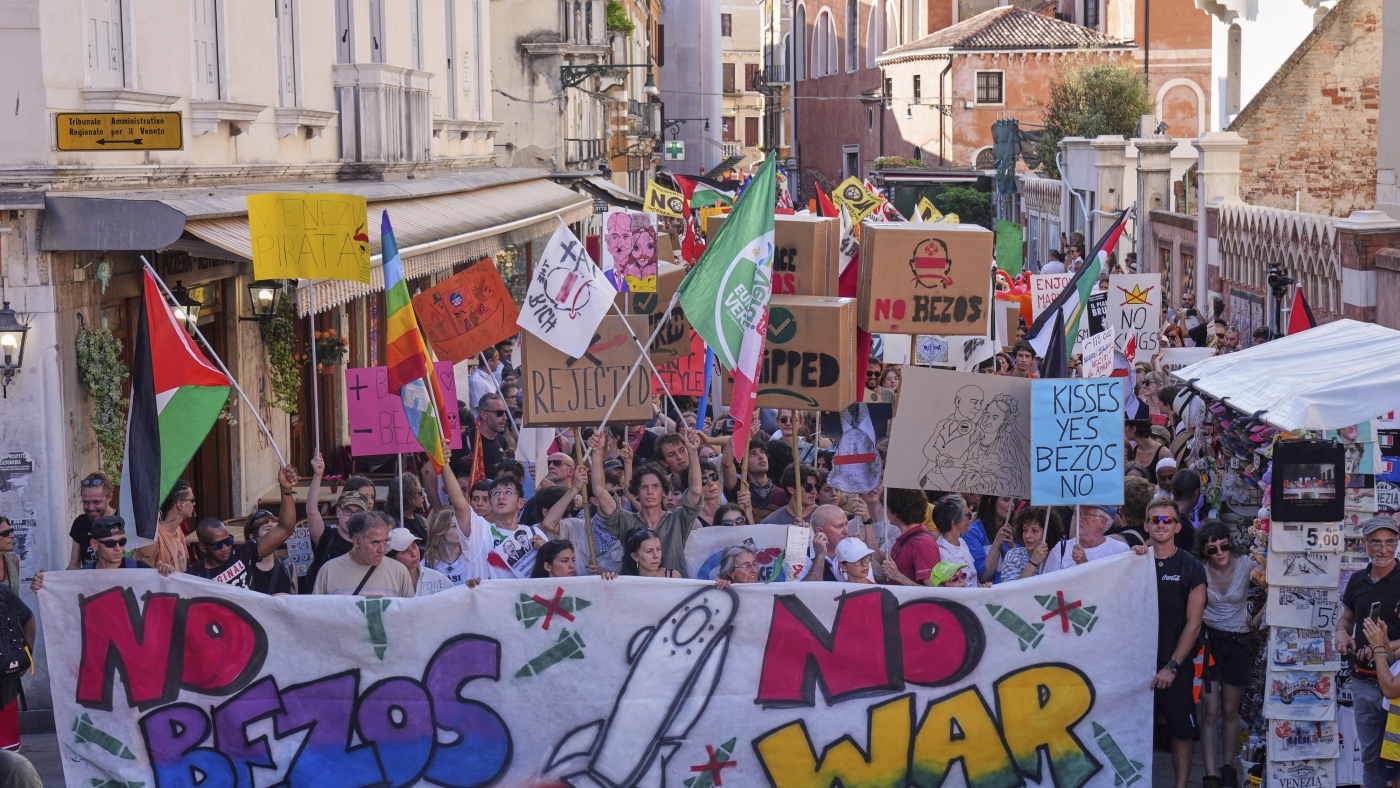The recent wedding of Jeff Bezos and Lauren Sánchez in Venice has ignited a firestorm of public debate, serving as a microcosm of the broader tensions between wealth, tourism, and local community rights. This event, held in one of the world’s most iconic and fragile cities, has brought to the forefront long-simmering grievances about the impact of luxury tourism and the commodification of cultural heritage. The controversy surrounding the Bezos wedding is not just about a single event but reflects deeper societal issues that are playing out in cities around the globe.
Venice, with its labyrinthine canals and historic architecture, has long been a magnet for tourists and high-profile events. However, the city has also become a battleground over the consequences of overtourism, which has strained its infrastructure, displaced residents, and eroded the quality of life for those who call Venice home. The decision by Jeff Bezos, one of the wealthiest individuals on the planet, to host a lavish three-day wedding celebration in this already overburdened city was met with immediate backlash. The wedding was seen by many as a symbol of the growing divide between the global elite and the local communities they visit, often with little regard for the impact on the places they temporarily occupy.
The protests that erupted in Venice during the wedding were a powerful expression of this discontent. Hundreds of demonstrators took to the streets, chanting slogans such as “Kisses yes, Bezos No” and “No Bezos, no War.” These phrases encapsulated the protesters’ opposition to what they viewed as an ostentatious and exclusionary use of public spaces and cultural heritage. The protests were not directed at the couple’s celebration of love but rather at the broader issues of social inequality and the negative impacts of elite tourism. The fact that the wedding’s main venue was forced to relocate away from the city center due to mounting pressure and logistical challenges was seen by activists as a victory—a testament to the power of civic activism in shaping events dominated by influential figures.
The controversy surrounding the Bezos wedding in Venice highlights several underlying issues that are relevant to cities around the world. One of the most pressing concerns is overtourism and its impact on accessibility. Venice has been grappling with an influx of tourists that has overwhelmed its fragile infrastructure and diluted the quality of life for residents. The arrival of well-heeled guests and the exclusive access they were granted to locations typically open to the public raised concerns about the equitable use of the city’s spaces. This issue is not unique to Venice; many historic cities are struggling to balance the economic benefits of tourism with the need to preserve their cultural and social integrity.
Another key issue is the stark contrast between the vast wealth of individuals like Jeff Bezos and the socio-economic realities of many Venetians. The wedding was seen as a display of wealth that was disconnected from the lived experiences of locals, many of whom face high costs of living and job insecurity. This economic disparity fuels resentment and underscores the need for more equitable tourism models that benefit local communities rather than just global elites. The protests in Venice were a clear rejection of the commodification of the city’s cultural heritage, reflecting fears that its unique character is being eroded by spectacle and commercial gain.
Environmental impact is another critical concern. Large-scale events often exacerbate environmental pressures in delicate ecosystems. Venice’s waterways and architecture are particularly vulnerable to damage from overcrowding and heavy foot traffic. The city’s fragile ecosystem cannot sustain the constant influx of tourists and high-profile events without long-term consequences. This raises questions about the sustainability of current tourism models and the need for more responsible event planning that prioritizes environmental preservation.
The public sentiment surrounding the Bezos wedding in Venice highlights the delicate balance between celebration and respect for local communities. While the wedding events featured celebrity guests and lavish parties that drew international attention, the clamor from Venetians emphasized the need for more conscientious event planning in historic urban spaces. The protests were not about personal animosity toward Bezos or the celebration of love but about the manner in which such displays reinforce systemic inequalities and disrupt community life. The slogan “Kisses yes, Bezos No” articulates a nuanced rejection of the excesses, not the human moments behind them.
The controversy surrounding the Bezos wedding in Venice offers valuable lessons for cities around the world. One of the most important takeaways is the crucial role of community engagement in large-scale events. Events in historic cities must involve local residents in the planning process to prevent alienation and maximize shared benefits. This approach ensures that the needs and concerns of the community are taken into account, fostering a sense of shared ownership and responsibility.
Another lesson is the need to reevaluate tourism models that prioritize short-term financial gains over long-term sustainability. Cities like Venice must develop tourism strategies that prioritize livability, environmental preservation, and cultural respect. This requires a shift away from mass tourism and toward more sustainable and inclusive models that benefit both visitors and residents. The Bezos wedding protests demonstrate the power of organized, peaceful civic action in shaping urban life. The ability of protesters to influence the wedding venue highlights the potential for activism to effect change and hold powerful figures accountable.
The frictions seen in Venice are unlikely to dissipate soon. Instead, the episode serves as a lens through which to view the broader challenges of reconciling global wealth and tourism with local values and sustainability. The controversy surrounding the Bezos wedding is a reminder that high-profile events can become symbolic battlegrounds over social justice, cultural identity, and power dynamics. These issues influence public perception well beyond the immediate context of the event.
In preserving the soul of Venice, it is essential to account not only for the grandeur of celebrations but also for the voices of those who call the city home. The “Kisses yes, Bezos No” movement is a chapter in the ongoing dialogue between tradition, modernity, and the right to a city that belongs to all who live in it. The lessons from Venice’s clash between wealth, tourism, and community rights are relevant to cities around the world, underscoring the need for more equitable and sustainable approaches to tourism and event planning.








